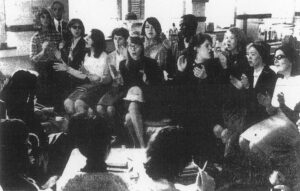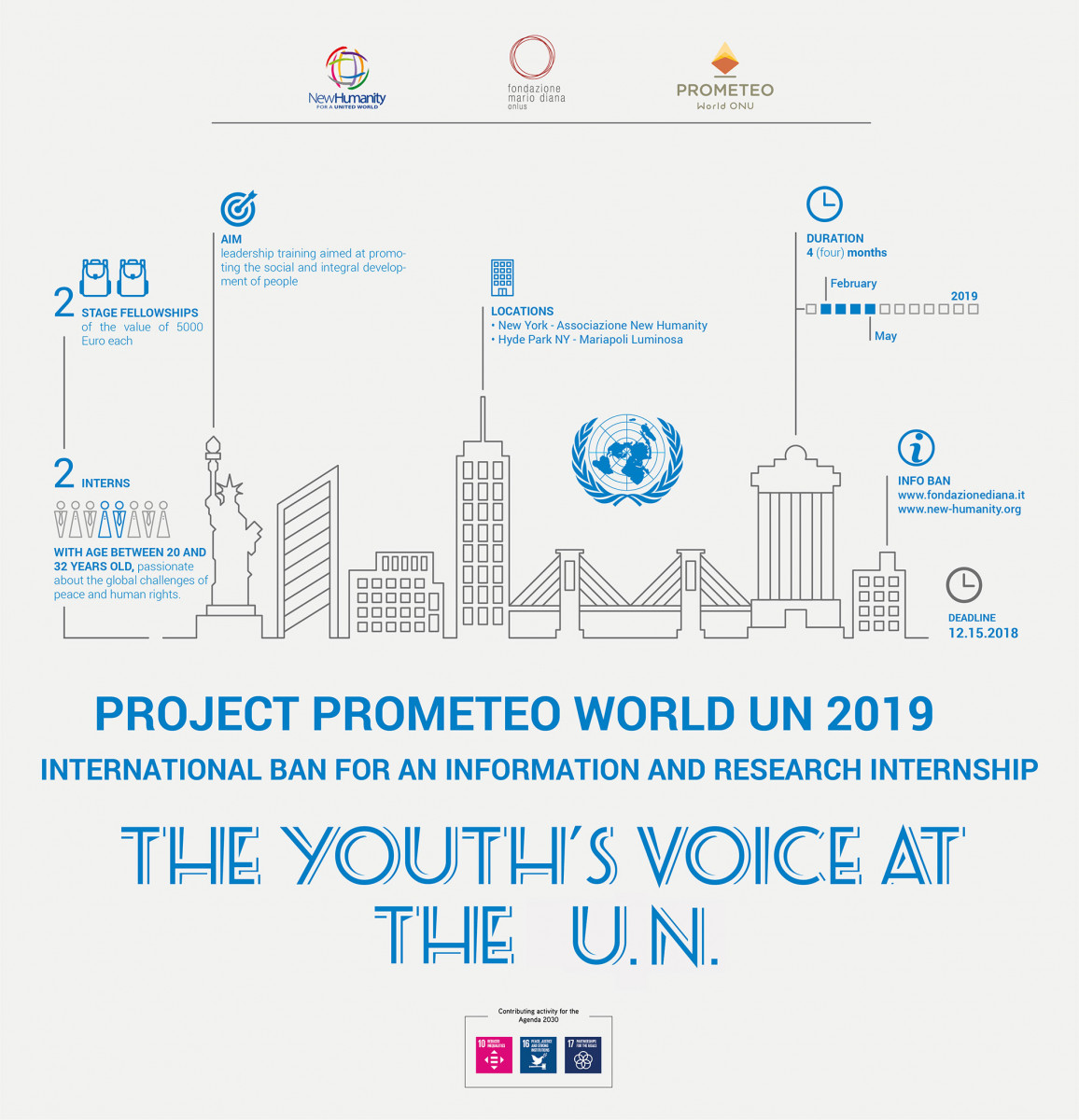
Watch
Digging out the roots of racism … within me

A very personal account from psychologist Nancy O’Donnell, originally from the USA now based in the Focolare international town of Loppiano, near Florence. Italy. Strongly moved by the wave of protests which followed the killing of George Floyd on 25 May, Nancy recalls her own involvement in the struggle for civil rights in the USA, her passion for justice and a life-long commitment to eradicate racism, starting with herself.
Writing this experience in such detail after so many years has been an emotional experience for me. There have been moments of wondering how things might be different today had history been kinder to us and allowed figures like King and Bobby Kennedy to pursue their dreams. The dismay and horror over recent events, does not lead me to despair. The belief that goodness and love will prevail remains my most firm belief.
March 1965. A second semester college freshman, shortly after her 18th birthday, laying on her bed in her college dorm is studying for a test. A close friend throws open the door to her room, saying: “We’re going to Alabama to march. Come with us! You just have to call your parents and get their permission!” Almost without thinking, she jumps up, runs down the corridor to the phone and calls home (no cell phones in 1965). Her father only comments, “Thank God someone in our family is doing something.”
Little did that college freshman know that those words of her father would launch her on an adventure that would change her life.
That college girl was me.

Together with Mariellen, the only other freshman in the group, and other young women from our small Catholic women’s college in Pittsburgh, we joined other students from neighboring colleges and climbed aboard a bus headed for Montgomery, Alabama. We could bring only a small sack with a few personal items, but who cared! We had a cause and we were charged with energy!
For the historians among you, let me give some context. We are in the midst of the Civil Rights Movement of the 60’s. A march had been attempted from Selma to Montgomery and been stopped brutally by the police. That day became known as “Bloody Sunday.” In the group was a pastor from Boston. Reverend James Reeb was a minister in the Unitarian Universalist Church, father of four, and active in the Civil Rights Movement. Two days later Reverend Reeb was murdered in cold blood on the streets of Selma. This event prompted us, a group of mostly naïve, enthusiastic college students, to travel about 1,000 miles to march for justice for Reverend Reeb. In fact, he was one of many religious leaders of all faiths who were actively involved in the Movement. Their presence was an important factor, at times overlooked, that brought moral support to the cause, together with many followers. Their leadership was trusted.
Back to the bus to Alabama. We sang protest songs, talked, slept and reflected on what lay ahead. At a certain point, a young man stood up and went to the mike at the front of the bus. He was wearing the typical denim overall of SNCC (Student Non-Violent Coordinating Committee) of which I was a member. It must have been a little after dawn and the scene outside the bus told me we were in a very poor section of the South. He began instructing us on how to protect ourselves in a variety of possible scenarios: police on horses, police with billy clubs, tear gas, etc. I’m not sure what showed on my face but inside I felt dread and uncertainty, feelings which I promptly squashed, trying to put on a brave face like everyone else around me. One piece of advice remained with me: don’t get separated from the crowd. If they get you out by yourself, you will most certainly be beaten. That is their tactic.
We arrived in Montgomery toward evening. There was a rally where we joined other groups of students from cities around the country. We were all there to make a difference. They informed us of the plans for the march the following day. We did a “sit-in” where someone told me to turn my sweatshirt inside out. It had my school’s name “Mt. Mercy College” written across the front. He explained: “The only thing worse than being a northern white girl coming here to march for the Negroes, is being a Catholic.” Another lesson in life hit me straight between the eyes.
That night we slept in sleeping bags on the floor of a Baptist church and being young, notwithstanding everything, I slept.
March in Alabama is warm and the sun was shining the next day. We started off on the planned route. I have no idea how many we were but it was not thousands. I remember singing, arm in arm with those around me, looking at the people in the neighborhoods we passed who watched wordlessly, and I wondered what they might be thinking.
Perhaps I was too caught up in my reflections but at a certain point, I realized I was very close to the last marchers and I was no longer arm in arm with the others. We turned a corner and I saw the State Capitol Building looming in front of us. The march stopped, the singing stopped. For some moments there was silence. I turned around and saw a line of police officers on horseback their billy clubs at the ready. There were similar lines on both sides of the street for as far as I could see. At what must have been a coordinated signal, they all moved at once toward us. Panic and screams erupted, mine among them. I started to run and ended up on my own, totally separated from the group, having lost a shoe in the process. There was nowhere to go and a police officer was right behind me, swinging his billy club. I crouched down and covered my head when someone grabbed me and pulled me back into the crowd that was retreating away from the onslaught. I felt the blow intended for my head pass over like wind that parted my hair. Once “safely” surrounded by the other demonstrators I looked back at the police officer. He was following right behind me at a short distance. When I looked into his eyes all I could see was hatred. I had the impression that he was not seeing me as a person, but rather what I stood for: the end of the world as he knew it, a challenge to beliefs he had learned and internalized from his childhood to which I was a threat. I continued walking, feeling the breath of the horse on my neck. The look in his eyes remained burned into my soul.
In segregated 1960’s Alabama, we reached “safety” when we entered the black neighborhood of the city, where we were welcomed warmly with hugs and support, as we sang to keep strong. We began to disperse, the majority of us just sitting along the curb of the street in a state of shock. There were some injuries but nothing appeared to be serious. Police on motorcycles were lined up along the head of the block probably to keep us contained where we were. One young man walked out into the middle of the empty street and sat down. A police officer gunned his motorcycle and sped toward him. The young man had his back to the officer and was run down in front of my eyes. We screamed as the scene unfolded, but then realized the young man’s injuries appeared to be minor and he was able to walk away with some assistance.
I have little memory of the rest of the afternoon. Toward evening, we received the news that Reverend King was arriving and we all moved to the end of street where his car would pass. This time I was out front. As his car stopped briefly right in front of me, I reached in through the open window and shook his hand. He looked me in the eyes and said, “Thank you for coming.” I have no idea what I responded, but his eyes I will never forget. They transmitted love and goodness, exactly the opposite of what I had experienced earlier. The look in his eyes took its place in my memory beside the earlier one, and in the coming weeks and months, these two images came to represent the most fundamental question of my life at that time: Would love or hatred win? Goodness or evil?
I returned to my college life but I was changed forever. When King and then Bobby Kennedy were assassinated in 1968, the hopes of my generation for change were slashed to pieces. I had just graduated from college and was on my way to graduate school in New York, practically convinced that evil had won. A sense of hopelessness filled me and at one point, I reflected that we should just blow the whole world up and start over.
What saved me from these disastrous musings was a meeting that had taken place the year after my experience in Alabama. There were people, followers of Chiara Lubich, who were profoundly convinced, and effectively convincing, that God who is Love, is the most powerful force in the world. I was deeply attracted to their ideas and their lifestyle. It took me a few years, but in 1969, I decided to hook my wagon to Chiara’s star and follow a way that I believed was powerful enough to bring positive change to a broken world – and to me.
I left for a two-year experience in an international center of the Focolare Movement located outside of Florence in Italy. Here I met young people from all over the world. It was scary but exhilarating. When four young women arrived from Africa, I took them under my wing. I had learned a few words of Italian and therefore could give them a hand with translations. One evening we had the job of washing the dishes using an industrial dishwasher. As I was explaining how to use this machine to one of my new friends from Cameroon, I discovered inside of me an attitude that I could not believe was in me: I felt like a colonizer, teaching something to an inferior people. I felt sick to my stomach and had to leave to try to process what I believed God was trying to tell me. I needed to dig deeper if I wanted to rip out the roots of racism in me.
Another pivotal moment was years later when I was working as a psychologist in a clinic in upstate New York. An African-American colleague and I got into a conversation around the use of the word “black”. I realized that almost every use of the color black indicates something negative or dangerous. I even remembered the old Westerns where the “bad guy” wore black and rode a black horse. So many subliminal messages nourish distance and fear between white and black. I resolved to never use those expressions again, and have tried to be faithful to this over the years.
The most recent rude awakening was in 2018. It started a few years earlier when I was teaching psychology at a university. One Fall I entered the department for the first day of classes and walked past an office where I saw a new professor – one I assumed to be an African-American – getting settled in her office. I rushed in, threw my arms around her and exclaimed, “Finally an African-American woman on our faculty. We are going to become best friends!” I found out much later that, despite her exterior demeanor of courteous pleasure at my greeting, inside she was saying, “This will never happen.” Since I did not know this and I can be very persistent when I think I have a great idea, she finally agreed to come and speak to my psychology of women class on the experience of black women. I also learned that her origins were Jamaican – another lesson on making assumptions. We did become best of friends and even after I moved to Italy, we managed to stay in contact and gave a joint presentation at a conference in Lublin, Poland on becoming people of dialogue. It was around this time that we laughingly remembered our first encounter. As we spoke, a new understanding awakened in me. Had the tables been turned, she would never have felt free to come into my office and give me a hug. She confirmed that this was true. My freedom in doing that was rooted in “white privilege”. I had acted with the certainty that she would appreciate and welcome my gesture. I am profoundly grateful to this extraordinary woman who helped me reach deeper inside myself and find another level of prejudice that I needed to acknowledge and address.


Today, still living in Italy, I am following the news from the States with sadness and fear. With two biracial great-nieces, the events hit very close to home. I may be much older than I was in ’65, but my passion for social justice has only grown over the years. I firmly believe that we are all called to be change agents in every way we can. That’s why I wrote this article. Hopefully it can be a catalyst for someone to think deeper and act consequentially.
Nancy O’Donnell
Source: Loppiano.it






